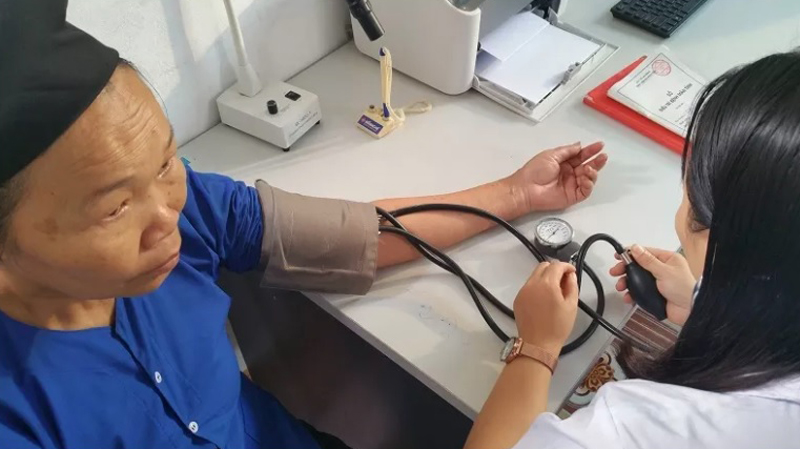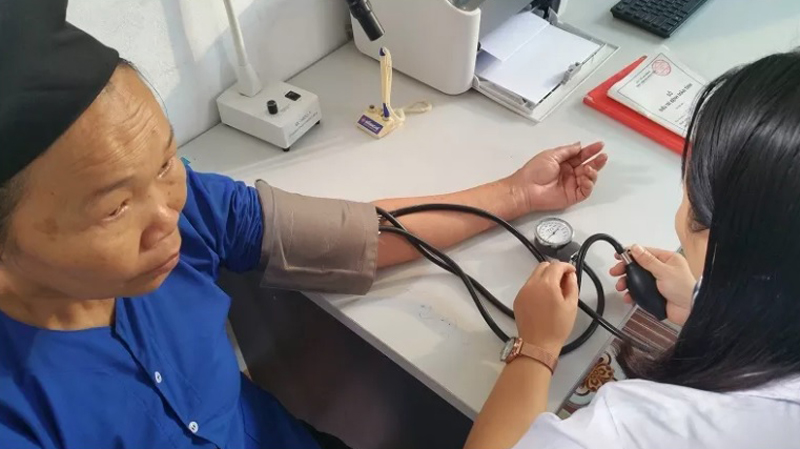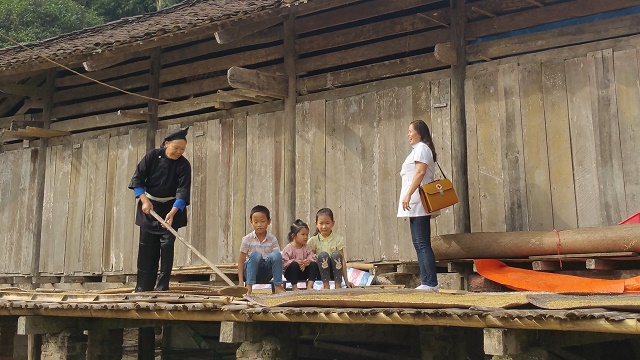



Although facing strong rivals the new format of the 2019 Asian Cup gives
Vietnam a chance of reaching the knockout phase as one of the four-best
third-placed teams. (Photo: Vietnam Football Federation)
In September 1978, just three years into the country reconstruction after the Vietnam War ended, the Southeast Asian nation signed the Alma Ata Declaration in the capital of Kazakhstan, a former Soviet republic, to demonstrate commitments to ensuring citizens’ health. The declaration is "a major milestone of the twentieth century in the field of public health, and it identified primary health care as the key to the attainment of the goal of Health for All," said the World Health Organization.
Along with a robust economic growth, one of Asia's fastest in the past decade, the Vietnamese government has been able to find funding and technical assistance at home and from abroad so as to locate more resources to the health sector, which has now been facing a rise in general public demand as it strives to ensure access to health care for each of its 95 million citizens.
Having developed not only a supportive legal corridor, the country has now built a medical station in each of its 11,100 communes nationwide.
"The network of medical facilities has been developed widely," the Communist Party of Vietnam stated in a resolution on strengthening people's health protection. It noted a better quality and a higher quantity of doctors and medical workers, which has helped improve all the indicators of health and average life expectancy.
"Without a commune-based medical system, it is tough for people to access medical facilities at a higher level due to the distance they have to travel. Many simply lack means of transport to go," said doctor Luan Van Tuan, deputy head of the medical centre in Thach An district of the northern mountainous province of Cao Bang.
Residents in the most remote area of Thach An would have to travel up to 80 km for a medical checkup at the district's hospital, while commune-based clinics were now able to perform early checkups, helping people save the cost for treatment, he said.
TINY COMMUNE CLINICS HELP REALISE MAJOR NATIONAL TARGETS
A commune-based medical station, or clinic, is designed to have at least five workers, including a physician who also its head, an assistant physician, a nurse, a midwife and an assistant pharmacist. Since not all of the communes nationwide have their station chief, the Health Ministry now plans doctor rotation to address the lack of highly-qualified medical staff in clinics.
But the dispatch of doctors to communes has brought more than just a realisation of a policy.
"After a while working in the district's medical centre, where I only worked with superiors, I started feeling so close to the people, to my patients as soon as I moved here," doctor Nong Be Giang said in her Kim Dong commune's clinic, where she has worked since 2016 and now heads the facility.
As Giang spoke, several local adults and a little boy emerged for a late-November checkup from the busy road that runs past the clinic and links Cao Bang with Lang Son province, home to one of Vietnam's main border gates with China. Among them was Nong Thi La, 56, of Nung ethnic minority group who came for a routine checkup on her diabetes.
"The staff of the clinic are very good. Sometimes we have to call them at night for an emergency and they come right away," said a 60-year-old resident of Kim Dong.
The clinic, now with four staff including Giang as they are short of a pharmacist, serves a community of around 3,200 people, most of them from Tay and Nung ethnic minority groups.
"The network of commune-based medical stations has been very effective in ensuring success for the government's (national) target programmes," said doctor Tuan from Thach An medical centre.
He was referring to major health-focused campaigns designed to help fight various diseases within certain periods, under which the government would focus resources to improve the medical sector's capacity in improving people's health. Such programmes include vitamin administration for children, vaccination against several diseases, care of reproductive health, measures to fight infectious and noncommunicable diseases, population control and food safety.
Medical workers, like Giang and her staff in Cao Bang province, have attended training earlier this year to improve knowledge under HPET project, fully known as the Health Professionals Education and Training for Health System Reforms project.
HPET, approved by the government in late 2013 for implementation by the Health Ministry between 2014 and 2020 and with funding mainly sourced from the World Bank and the European Union, aims to improve the quality of education and training for the health workforce and strengthen the capacity for PHC in Vietnam's 15 poorest provinces, thus to partly reduce pressure at overloaded hospitals at higher levels.
The funding would also go to refurbishing 26 model clinics under a Health Ministry initiative, where the Family Medicine principle is applied. The ministry plans to expand the model nationwide by 2023.
PHOTO CONTEST - A UNIQUE INITIATIVE
The contest with the theme "Primary Health Care for Vietnamese People" has made Vietnam the only country among more than 100 signatory states of the pact to have organized such an event with the participation of the World Bank, said a World Bank representative attending the contest's award ceremony in Hanoi's downtown.

Nurse Nong Thi Viet from the Kim Dong commune's medical station (Cao Bang province) talks to Nong Thi La, a member of Nung ethnic minority group during a routine visit.
Hosting the contest, the national radio Voice of Vietnam has received more than 1,200 photos within a two-month period ending October from 350 professional and amateur photographers, many of them work in PHC teams in the grassroots level, the organizing committee said.
"We recognized that health care teams working at the grassroots level are key to ensure immediate primary level treatment, particularly in remote and underserved areas,” Koen Duchateau, Head of Development and Cooperation at the EU Delegation, told participants before handing out prizes to the award winning photographers. The EU has been the biggest donor in Vietnam’s health sector.
Interestingly, the contestant who won the first prize of the contest is a doctor who has been in his job for 37 years. Pham Quoc Hung, now head of a commune-based medical station in the southern province of Dong Nai, bagged the prize of VND50 million (US$2,100) for capturing a moment when a boy administered Vitamin A.
Photographers have tried and reflected PHC-related activities in all of Vietnam's three regions and the best 51 photos have been framed for public display in Hanoi's downtown on Dec 7-9.